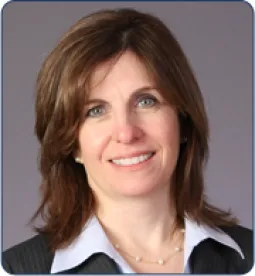Since the passage of the Dodd-Frank Wall Street Reform and Consumer Protection Act of 2010, private funds have become the subject of heightened scrutiny by both the SEC’s Division of Enforcement and the Office of Compliance Inspections and Examinations (“OCIE”). Based on recent announcements, this trend is likely to continue.
In 2012, OCIE announced an initiative to conduct “Presence Exams” or focused, risk-based examinations of investment advisers to private funds who recently registered with the SEC. See the OCIE’s National Exam Program letter. More recently in the SEC’s 2014 CCO Outreach Program, the SEC announced that it had conducted 250 Presence Exams. The SEC added that many of the exams revealed “significant findings,” but did not disclose whether those findings led to enforcement referrals or were resolved in the deficiency letter process. The SEC reiterated that focus areas of the Presence Exams included: (1) investment conflicts of interest including personal and affiliates’ transactions and fees paid to advisers and expenses charged to funds; (2) marketing, including the use of placement agents and using past performance; (3) valuation; and (4) custody.
Recently, the SEC formed a new “group” within OCIE to focus on the approximately 1,500 newly registered advisers to private equity and hedge funds. The new group is being led by two “industry experts” hired by the SEC in the last few years and will include staff from four regional offices across the country. If the group is successful, the SEC intends to expand the unit to additional regional offices.
Traditionally, the SEC has created working groups or specialized units in the Division of Enforcement to focus on what it perceives to be high-risk areas, i.e., where investor funds are most at risk. The Division of Enforcement currently has five specialized units: (1) Market Abuse, (2) Asset Management, (3) Municipal Securities and Public Pensions, (4) Foreign Corrupt Practices Act, and (5) Complex Financial Instruments. These units were formed in significant part due to the criticism of the agency for failing to detect Bernie Madoff’s massive Ponzi scheme. Each of these units is led by a senior officer who reports to the Director of the Division of Enforcement and is staffed by members of regional offices across the country.
It is very likely that the new private equity group will coordinate closely with the Asset Management Unit as that unit has developed significant expertise with respect to hedge funds, investment advisers and private equity funds. One of the group’s leaders, Igor Rozenblit, was with the Asset Management Unit since 2010. Moreover, the Asset Management Unit has been very active in bringing “message” cases against the very funds that the new group is charged with policing.
In addition to forming the new group, the SEC has also asked Congress for additional funds to support its examination program. The SEC seeks to add 316 staff to its examination program. Currently, there are approximately 450 examiners, accountants and lawyers in 12 regional offices. If the SEC receives the additional funds, it could almost double the size of its examination staff allowing it to conduct significantly more exams and assist with more enforcement investigations.
In the last few months, the Division of Enforcement formed three other new “groups” to focus on different areas. Last summer, the SEC announced the creation of: (1) the Financial Reporting and Audit Task Force, (2) the Microcap Fraud Task Force, and (3) the Center for Risk and Quantitative Analytics. These groups, unlike the formal units, will not conduct investigation. They are intended to identify potential violations and make referrals to the investigative staff.




 />i
/>i

